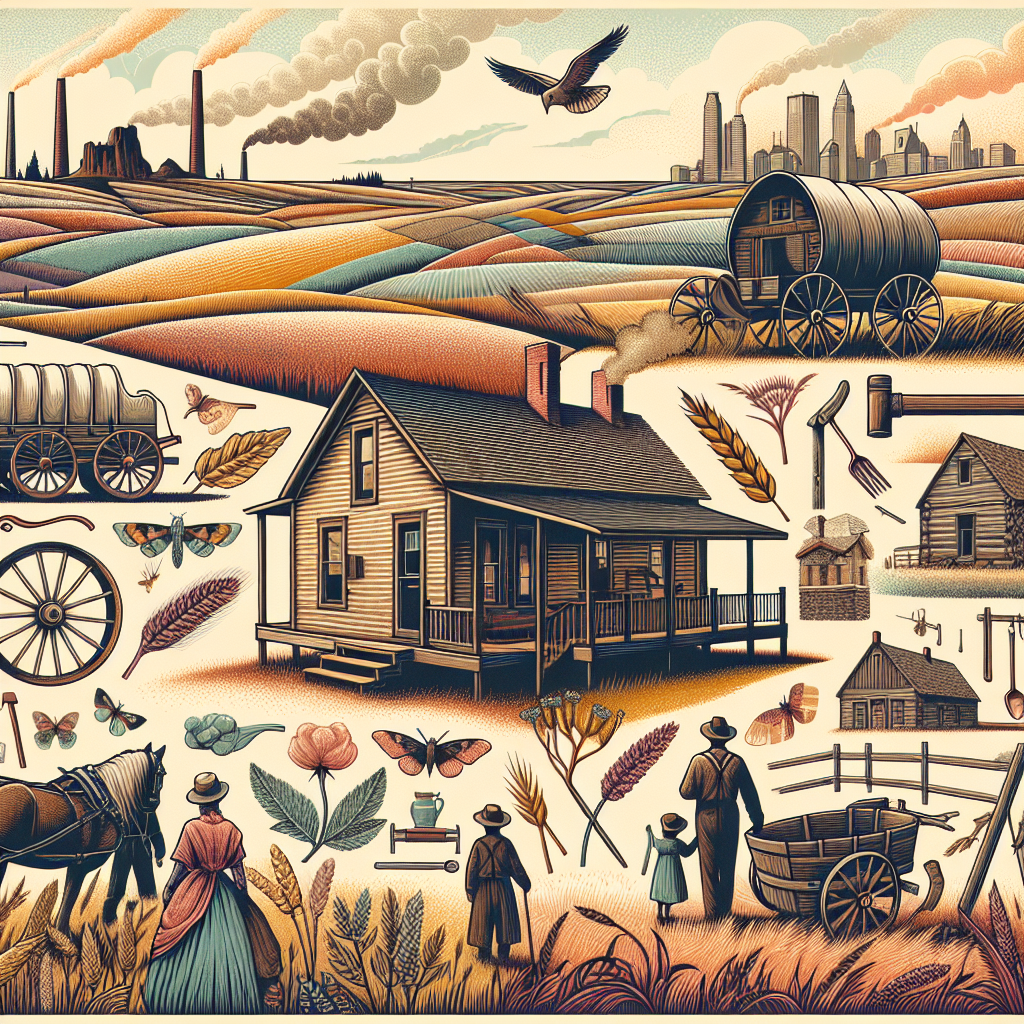Introduction
"Little House on the Prairie" by Laura Ingalls Wilder is a seminal work in American children’s literature and is widely regarded as a timeless classic. This book is the third in the "Little House" series, following "Little House in the Big Woods" and preceding "Farmer Boy." Published in 1935, the series is partially autobiographical, based on Laura Ingalls Wilder’s childhood experiences in a settler family migrating across the American midwest during the late 19th century. The significance of "Little House on the Prairie" within literature stems not only from its engaging narrative and compelling characters but also from its candid depiction of the pioneering spirit that shaped the United States.
Significance in Literature
"Little House on the Prairie" holds a unique place in literature as a vivid narrative of family life during the westward expansion, a period marked by both immense hardship and optimism. Through the Ingalls family’s adventures and challenges, Wilder provides an intimate look at the pioneering experience. Her emphasis on family, resilience, and the connection between humans and their environment has resonated with generations of readers, granting the book a lasting legacy.
Main Themes
One of the central themes of "Little House on the Prairie" is the notion of survival and adaptability. The Ingalls family frequently faces challenges such as harsh weather, isolation, and the struggle to cultivate land. These experiences highlight their determination and ingenuity. Another prominent theme is the importance of family and community. Despite the largely solitary life on the prairie, interactions with other settlers and Native Americans add layers to the Ingalls family’s journey.
A third significant theme is the concept of Manifest Destiny, which is subtly woven throughout the narrative. The Ingalls family embodies the settler spirit, moving westward in pursuit of prosperity. However, this theme is presented with complexities, including the eventual displacement of Native American tribes, which introduces a nuanced exploration of the larger cultural and social ramifications of westward expansion.
Character Development
Central to the story are Charles ("Pa"), Caroline ("Ma"), and their three daughters, Mary, Laura, and Carrie. Laura Ingalls, the protagonist and surrogate for Wilder herself, is portrayed as curious, adventurous, and occasionally rebellious. Her relationship with her family, particularly with Pa, is intricately developed throughout the narrative. Pa’s storytelling and skill are vital to their survival and provide moral lessons. Ma represents the epitome of frontier womanhood – nurturing, resourceful, and ever practical.
The character development is further enriched by their interactions with individuals outside the family, such as Mr. Edwards, an embodiment of the hardy frontiersman, and Native Americans, whose portrayal has been critiqued for its time-bound perspectives but offers a genuine reflection of the era’s complexities.
Narrative Techniques
Wilder’s narrative style is characterized by vivid descriptions and keen observations of the natural world. Her ability to convey the beauty and danger of the prairies makes the setting a character of its own. The descriptive language not only paints a picture of the landscape but also reflects the emotional states of the characters and the challenges they face.
Dialogues are crafted to reflect the time period while evoking the personalities and values of each character. The narrative unfolds through a series of episodic adventures, each chapter often presenting a unique challenge or event that contributes to the overall arc of the family’s journey.
Examples from Key Chapters
One memorable chapter is the one where the family builds their log house. This chapter emphasizes themes of cooperation and perseverance. The detailed description of the construction process serves as a metaphor for building a life through toil and effort. Another significant moment is the encounter with Native Americans, which brings forward both the tensions and the misunderstandings prevalent during that historical period.
Similarly, the chapter describing a prairie fire demonstrates Wilder’s skill in building suspense and showcasing the perils of frontier life. The family’s strategic and calm response underlines their resilience and unity.
Cultural, Social, and Historical Contexts
"Little House on the Prairie" provides an insightful reflection of the attitudes and realities of the late 1800s. It offers contemporary readers a glimpse into the societal norms, including family dynamics, gender roles, and racial attitudes. The interactions with Native Americans, while controversial by today’s standards, prompt discussions on historical perspectives and the complexities of American history.
Legacy and Influence
The "Little House" series, and particularly "Little House on the Prairie," has left an indelible mark on both literature and popular culture. Adaptations such as the long-running television series have introduced the story to new audiences worldwide. The books have inspired discussions on historical accuracy, representation, and the depiction of American frontier life, contributing to a broader understanding of the pioneer era.
Conclusion
Reflecting on "Little House on the Prairie," one might consider the timeless appeal of its core values: family, resilience, and a pioneering spirit. These themes remain relevant as they resonate with universal human experiences. Today, readers might ponder how these values translate in a modern context, considering shifts in societal norms and historical perspectives. How do we reconcile the pioneering ethos with contemporary discussions about displacement and cultural sensitivity? What lessons can be drawn from the family’s approach to challenges, both practically and emotionally?
Ultimately, "Little House on the Prairie" prompts readers to reflect on the past while considering its relevance for the present and future, ensuring its place as a cherished work in American literature.
Got more questions? Our personalized Book Explorer AI assistant is here to help. Click here to start a conversation!
[Advertisement]
Looking to find deeper meaning in the books you love? Discover how ANY book relates to positive biblical principles with Books and Scripture GPT‘ from BGodInspired.com. Click here to explore the connections that might surprise you!
[Advertisement]

